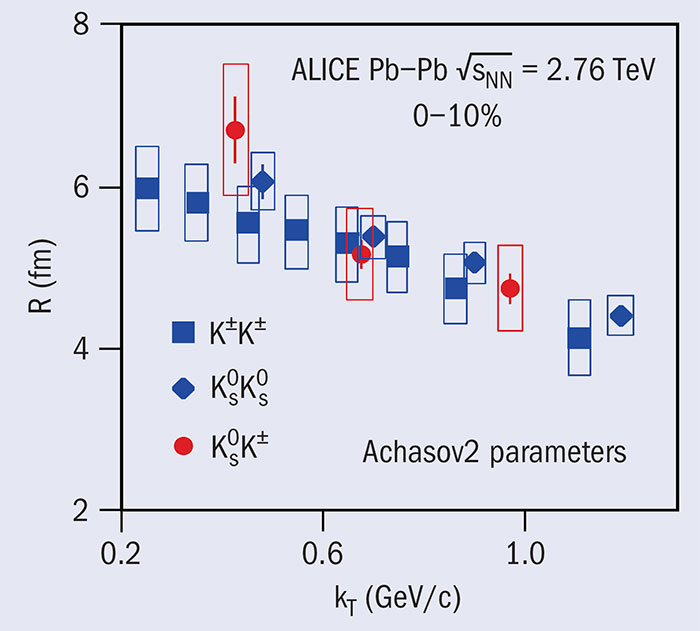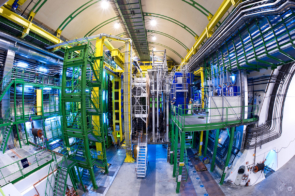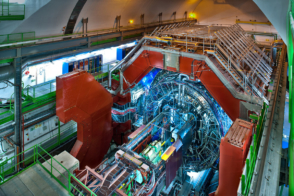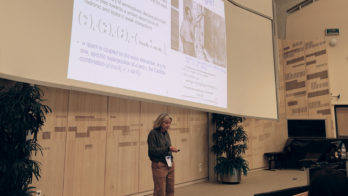Radius parameters versus average transverse kaon-pair momentum determined from K0S – K± correlations and identical-kaon correlations in central ALICE lead–lead collisions.
The a0(980) resonance is formally classified by the Particle Data Group as a light diquark (quark + antiquark) meson similar to the pion. However, it has long been considered as a candidate tetraquark state made up of two quarks and two antiquarks. Existing experimental evidence based on the radiative decay of the φ meson has not been convincing, so the ALICE collaboration took a different approach to study the a0 by measuring K0S – K± correlations in lead–lead collisions at the LHC. Since the kaons are not identical there is no Hanbury–Brown–Twiss interferometry enhancement, and since the K0S is uncharged there is no Coulomb effect. Nevertheless, because the rest masses of the two kaons reach the threshold to produce the a0 it is expected that there is a strong final-state interaction between the two kaons through the a0 resonant channel.
Both the radii and the emission strength from the K0S – K± analysis agree with the identical kaon results, suggesting that the final-state interaction between the K0S and K± goes solely through the a0 resonance without any competing non-resonant channels. A tetraquark a0 is expected to couple more strongly to the two kaons, since it has the same quark content, while the formation of a diquark state requires the annihilation of the strange quarks, which is suppressed due to geometric effects and a selection rule. Although there are no quantitative predictions for the magnitude of this suppression that would result for a diquark form of a0, the qualitative expectation is that this would open up non-resonant channels that would compete with the a0 final-state interaction, making it smaller than the identical-kaon values. The ALICE result of the final-state interaction going solely via the a0 thus favours the interpretation of the a0 as a tetraquark state.






